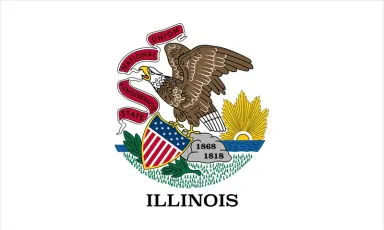Missouri Trucking Laws

Missouri has a vast network of highways that commercial trucks commonly traverse. While the trucking industry plays a critical role in the state's economy, large commercial vehicle accidents can result in significant damages and have catastrophic consequences for victims and their families.
According to the Missouri Department of Transportation (MoDOT), the state had a crash rate of 1.28 per 100 million vehicle miles traveled in 2021, with 156 traffic fatalities involving commercial vehicles. There was a slight decrease in total truck accidents, from 15,792 in 2021 to 15,005 the year after.
When it comes to trucking accidents, the laws and regulations can be quite intricate. That's why victims need the help of knowledgeable and skilled trucking accident lawyers who can advocate for them, ensure their rights are protected, and bring those who acted negligently to justice.
Missouri Commercial Driver’s License Requirements
The Missouri Department of Revenue's Motor Vehicle Bureau issues responsible for issuing commercial driver's licenses (CDLs) to commercial truck drivers. These licenses are required for anyone operating a commercial motor vehicle weighing over 26,000 pounds or transporting hazardous materials.
To obtain a CDL in Missouri, applicants must pass knowledge and skill tests, including written and driving exams. The written test covers vehicle inspection, basic control skills, and safe driving practices. The driving test evaluates a person's ability to safely operate a commercial motor vehicle.
Applicants for a CDL in the state must also meet certain medical requirements. They should have a valid medical examiner's certificate indicating they are physically qualified to operate a commercial motor vehicle. This certificate must be renewed every two years.
Missouri Vehicle Safety Requirements
Missouri has specific vehicle safety requirements to ensure that vehicles operating on its roads meet certain standards. These apply to all vehicles, including trucks and tractor-trailers.
Trucks are subject to additional safety requirements due to their size and weight. In addition to meeting the standard vehicle safety requirements, they must comply with specific size, weight, and cargo regulations. These have been established to ensure they are safe to operate and do not pose a risk to other drivers or pedestrians.
Size and Weight Requirements
Missouri’s specific size and weight requirements for trucks operating on its roads include weight restrictions on cargo.
The weight limits depend on the type of road and the number of axles on the truck. For example, on a two-axle truck, the maximum gross weight allowed is 36,000 pounds on interstate highways and 34,000 pounds on other highways. On the other hand, a three-axle truck can carry up to 48,000 pounds on interstate highways and 43,000 pounds on other highways.
The specific size limits for trucks include height, length, and width restrictions. On interstates and designated highways, there is no maximum length limit for tractor-trailers, but the length of semi-trailers cannot exceed 53 feet. On all other highways, the maximum combined vehicle length for tractor-trailers is 65 feet. Additionally, the maximum width allowed for all vehicles, including trucks, is 8 feet and 6 inches, while the maximum height is 14 feet.
Drivers must obtain Oversize Overweight permits when hauling cargo that exceeds the legal weight and size requirements.
Commercial vehicles involved in interstate commerce must also display the motor carrier's legal name, the US DOT identification number, and the operator's legal name. For commercial vehicles in intrastate commerce within Missouri, the motor carrier's US DOT number must be displayed with the marking "MO" on the side of the vehicle.
Truck Inspection Requirements
Commercial truck inspection requirements are critical to ensuring that trucks operate on Missouri's roads safely. The Missouri State Highway Patrol enforces these through commercial vehicle inspections at least once every 12 months.
Those dealing with interstate commerce must comply with the Federal Motor Carrier Safety Administration's Regulations. These establish minimum safety standards for commercial motor vehicles and require regular inspections and maintenance. Commercial trucks must also carry documentation of inspections and maintenance records.
The inspections cover several critical parts of the vehicle, including brakes, tires, fuel levels, steering, signals, and reflectors. It also checks windshield wipers, emergency equipment, coupling devices, and the horn.
Missouri Speeding Law
Missouri has specific speeding laws, with maximum speeds in place for trucks on certain types of roads and under particular conditions. Their maximum speed limit on interstate highways is 70 mph, except in certain urban areas where the limit may be lower. They also have a maximum speed limit of 60 mph on urban interstates, 65 mph on rural expressways, and 55 mph on two-lane state roads identified by letter. This is unless a higher speed limit — which can go up to 60 mph — is established by MoDOT.
Violating these laws can result in fines and other penalties. The fine depends on the speed at which the driver traveled over the posted limit.
Missouri DUI Law for Truck Accidents
The Missouri DUI Law prohibits motorists — including truck drivers — from operating a vehicle while under the influence of alcohol or drugs. The legal limit for blood alcohol concentration (BAC) is lower for commercial drivers than non-commercial drivers.
A commercial driver is considered to be driving under the influence if their BAC is 0.04% or higher. This is half the legal limit of 0.08% for non-commercial drivers. A CDL holder, or a person operating a commercial motor vehicle, may be disqualified for a year if found guilty of DUI. A second DUI offense may lead to a lifetime CDL disqualification.
Additionally, a truck driver involved in a DUI accident may face fines and even criminal charges. For example, a truck driver who causes a fatal accident while under the influence may be charged with vehicular homicide, a Class B felony punishable by up to 15 years in prison. For non-fatal accidents involving DUI, one may be charged with a Class A misdemeanor, which carries a penalty of up to one year in jail and a fine of up to $1,000.
Missouri Driving With a Suspended License
It is illegal for in-state and out-of-state drivers to operate a commercial motor vehicle on Missouri's highways if their CDL or driving privileges have been revoked, suspended, or canceled. Doing so has serious consequences.
A commercial truck driver may be found guilty of a class A misdemeanor for a first offense. Subsequent violations within 10 years may lead to being disqualified from driving a commercial motor vehicle for life. If the person was transporting hazardous materials at the time of the offense, the disqualification period might be extended to three years.
Not following this regulation is illegal and extremely dangerous. It has been put in place to ensure that only qualified and licensed drivers are operating commercial vehicles on Missouri's highways.
Missouri Commercial Trucking Insurance Requirements
The state has set forth specific insurance requirements for motor vehicles, including $25,000 per person and $50,000 per accident for bodily injury, as well as $25,000 per accident for property damage. Uninsured motorist coverage of $25,000 for bodily injury per person and $50,000 per accident is also required by law.
Additionally, commercial trucking insurance is mandatory for trucking companies operating in Missouri. The minimum requirements for them are as follows:
$750,000 for general freight carriers.
$1,000,000 for carriers that transport oil and certain hazardous wastes.
$5,000,000 for carriers that transport other hazardous substances.
Commercial trucking companies may also opt to purchase other coverages, such as physical damage, cargo, and workers' compensation insurance.
If a commercial trucking company is found to be operating without the required insurance coverage in Missouri, it may face significant legal and financial consequences. In addition to fines and penalties, it may be liable for any damages or injuries resulting from an accident.
How Much Can One Sue for a Truck Accident in Missouri?
The amount that someone can sue for a truck accident in Missouri will depend on several factors, such as the severity of the injuries sustained, the extent of property damage, and the degree of negligence of the parties involved.
There is no specific cap on the amount of economic damages that can be awarded in a truck accident lawsuit, covering current and future medical expenses, lost income, and diminished earning capacity. However, there is a $400,000 limit on non-economic damages, such as loss of enjoyment of life and emotional distress.
Additionally, the cap on punitive damages is set at $500,000 or five times the amount of the actual damages awarded, whichever is greater. This compensation is intended to punish the defendant for their actions and deter similar conduct in the future.
To determine the potential amount of compensation in a truck accident lawsuit, it's best to consult with an experienced personal injury attorney who can assess the specifics of the case and provide an estimate based on similar lawsuits in the past.
Missouri Statute of Limitations for Truck Accidents
The statute of limitations for truck accidents in Missouri is five years from the date of the accident, including for personal injury and property damage lawsuits. In addition, wrongful death claims must be filed within three years of the date of the decedent's death.
However, the statute of limitations can vary depending on the circumstances of the case. For example, it may be extended if the victim is a minor or has a mental disability. Moreover, if the at-fault party is a government entity, there may be different rules and shorter timeframes for filing a claim.
If you are a truck accident victim, ensuring your claim is filed within the applicable statute of limitations is essential. Waiting too long to pursue legal action could result in losing your right to seek compensation for your injuries and damages.
Missouri Is a Fault State for Insurance Claims
Missouri is a fault state for insurance claims, which means that when an accident occurs, the party found to be at fault is responsible for paying for the resulting damages and injuries.
A truck accident victim can file a claim with the at-fault driver's insurance company, which will investigate it and determine who is to blame for the accident. If the at-fault driver's insurance company accepts liability, they will pay for the damages and injuries suffered by the victim.
However, if the insurance company does not accept liability or disputes the claim, the victim may have to file a lawsuit to recover damages. In this case, the victim would need to prove that the at-fault driver was negligent or acted recklessly, which caused the accident.
Missouri Is a Pure Comparative Fault State for Trucking Accident Lawsuits
Missouri is a pure comparative fault state for trucking accident lawsuits, and a trucking accident victim who shares some responsibility can still receive compensation.
Under this fault system, a plaintiff in a trucking accident case can recover damages even if found to be partially at fault for the accident. However, it will be reduced in proportion to their percentage of fault. For example, if they are found to be 30% to blame for the accident and the damages awarded amount to $100,000, it will be reduced by 30%, resulting in a recovery of $70,000.
Missouri's pure comparative fault system is established by common law, meaning it has been developed over time through court decisions. It is important for victims of trucking accidents in Missouri to understand the state's comparative fault system to be able to recover the maximum amount of damages possible.
Average Settlement for Missouri Trucking Accident Lawsuits
As previously discussed, the amount of settlement for a trucking accident lawsuit in Missouri depends on the specific circumstances of the case. This is why it is hard to gauge the average amount recoverable by truck accident victims in the state.
In February 2023, a settlement for a trucking accident that resulted in the death of a motorist and injuries to a passenger reached $12.25 million. The settlement amount was reached as the plaintiffs' attorneys argued that the truck driver was negligent in failing to yield to the victim's vehicle, causing the fatal collision. They also claimed that the trucking company was responsible for failing to train and supervise their driver properly.
As the example above shows, one can be awarded damages worth millions. However, truck accident plaintiffs typically receive thousands of dollars. Victims of trucking accidents in Missouri should work with an experienced attorney who can evaluate their case and help them seek the maximum amount of damages possible.
Legal Resources for Missouri Trucking Accident Victims
Missouri State Bar Lawyer Referral Service
The Missouri Bar Association maintains a lawyer referral directory to help people find qualified attorneys in the state. The directory includes lawyers from various practice areas, including personal injury law, which can be relevant for truck accident victims seeking legal representation. The site allows individuals to search by location and practice area, making it easy to connect with attorneys who can help with their legal needs.
Missouri Legal Services
Missouri Legal Services is a nonprofit organization that provides free legal assistance to truck accident victims from low-income families. The organization's mission is to ensure equal access to justice for all community members, regardless of their financial situation. It offers various legal services, including advice, representation, and education.
MoDOT Traveler Information Map
The department developed the MoDOT Traveler Information Map, a web-based tool that shows real-time information on road conditions, traffic incidents, and other relevant travel details. It allows users to view current traffic conditions and road closures throughout the state and receive alerts for incidents such as accidents or road work. The map also provides information on weather conditions and forecasts, as well as the location of rest areas and other amenities along Missouri's highways.
Missouri Commercial Driver License Manual
The CDL manual is a comprehensive guide to everything a commercial driver needs to know to operate a commercial vehicle safely and legally. It has chapters on driving skills, vehicle inspections, hazardous materials, and the rules and regulations of the road.
Missouri Driver Guide
The Missouri Driver License Guide is a comprehensive resource for individuals seeking to obtain a driver's license or renew an existing one. It covers various aspects of driver licensing, including getting a permit, taking the written and driving exams, and maintaining a valid license.
Missouri Trucking Association
The Missouri Trucking Association is a nonprofit organization representing the interests of the state's trucking industry. It serves as an advocate for the sector and works to promote safety, efficiency, and profitability for its members. It offers them various services and resources, including legislative advocacy, industry news and information, and educational opportunities. The association also provides networking possibilities, allowing its members to connect with other industry professionals and stay up-to-date on the latest developments in the field.
Expertise.com StaffAuthor
Step into the world of Expertise.com, your go-to hub for credible insights. We don't take accuracy lightly around here. Our squad of expert reviewers, each a maestro in their field, has given the green light to every single article you'll find. From rigorous fact-checking to meticulous evaluations of service providers, we've got it all covered. So feel free to dive in and explore. The information you'll uncover has been stamped with the seal of approval by our top-notch experts.




